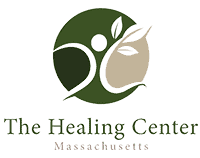At The Healing Center in Stoughton, MA, our Medication-Assisted Treatment (MAT) program offers a safe and effective path to recovery for individuals struggling with opioid and alcohol addiction. MAT combines FDA-approved medications—such as Suboxone, Vivitrol, and Naltrexone—with comprehensive behavioral therapies and counseling to address both the physical and psychological aspects of addiction. This evidence-based approach helps reduce withdrawal symptoms, manage cravings, and stabilize brain chemistry, allowing individuals to fully engage in their recovery journey.
What sets our MAT program in Stoughton, MA apart is the personalized, compassionate care we provide to each client. Our experienced medical and clinical teams work closely with individuals to develop customized treatment plans that support long-term sobriety and overall wellness. By integrating MAT into a broader continuum of care—including trauma therapy, relapse prevention, and holistic healing—The Healing Center creates a balanced and supportive environment where lasting recovery is possible.
Understanding Medication-Assisted Treatment
Medication-Assisted Treatment (MAT) is an evidence-based approach to treating substance use disorders, particularly opioid and alcohol addiction. MAT combines FDA-approved medications with behavioral therapies and counseling to provide a “whole-person” method of care. Rather than simply substituting one substance for another, MAT works by stabilizing brain chemistry, reducing cravings, and blocking the euphoric effects of drugs or alcohol. This allows individuals to focus on healing, rebuilding their lives, and engaging more fully in the therapeutic aspects of recovery.
The most commonly used medications in MAT include Suboxone (buprenorphine/naloxone), Vivitrol (naltrexone), and Methadone, each carefully selected based on a person’s substance use history, health status, and recovery goals. These medications are always administered under the supervision of qualified healthcare providers and are most effective when combined with therapy and support services. Studies show that MAT significantly improves treatment retention, reduces the risk of relapse, and lowers the chances of overdose—making it a vital tool in combating the opioid crisis and supporting long-term recovery.


Is Medication-Assisted Treatment Effective?
Medication-Assisted Treatment (MAT) is one of the most effective and well-researched interventions for opioid and alcohol use disorders, combining FDA-approved medications with counseling and behavioral therapies to tackle both the physiological and psychological aspects of addiction. According to the National Institute on Drug Abuse (NIDA), medications such as methadone, buprenorphine, and naltrexone significantly reduce cravings, ease withdrawal symptoms, and are linked to lower rates of overdose deaths and transmission of infectious diseases. For example, methadone treatment has been shown to reduce overdose mortality by 59%, while buprenorphine reduces it by 38% in patients who received care after a non-fatal overdose.
Clinical studies highlight that integrating MAT into addiction treatment significantly improves outcomes. A Yale-led analysis found that treatment approaches without medication may be not only ineffective, but even harmful—patients receiving methadone or buprenorphine had markedly lower risk of death compared to those in non-medication abstinence-based programs. In addition, a 2020 NIDA-funded study confirms that individuals on MAT are about 50% more likely to remain in treatment programs compared to those receiving counseling alone. This enhanced retention translates into better recovery rates and lower risk of relapse.
Medication dosing is also crucial for success. Research shows that adequate doses of buprenorphine (at least 16 mg per day) significantly improve treatment retention and reduce illicit opioid use compared to lower doses or tapering strategies. Moreover, removal of restrictive prior authorization requirements has been associated with a 19% decrease in relapse rate, underscoring how access barriers can directly affect recovery outcomes. These findings reinforce that MAT, when provided properly and without administrative barriers, offers a life-saving, evidence-based path to long-term recovery.
Request a Confidential Callback
What to Expect at Our MAT Program in Stoughton, MA
At The Healing Center in Stoughton, MA, our Medication-Assisted Treatment (MAT) program offers a safe, structured, and compassionate path toward recovery from opioid abuse or alcohol addiction. When you begin your journey with us, the first step is a comprehensive clinical assessment conducted by our medical and therapeutic team. This evaluation helps determine the appropriate FDA-approved medication—such as Suboxone, Vivitrol, or Naltrexone—and ensures your treatment plan is tailored to your unique history, needs, and goals. Our team will also review your mental health status, substance use patterns, and overall wellness to create an integrated care plan.
Once treatment begins, clients are closely monitored by medical professionals to ensure that medications are both effective and well-tolerated. Our MAT program is not just about managing physical symptoms—it also includes ongoing support through individual therapy, group counseling, trauma-informed care, and relapse prevention planning. We focus on helping clients build coping skills, process emotional challenges, and strengthen their commitment to recovery. Sessions are held in a safe, non-judgmental environment where you are treated with dignity and respect every step of the way.
As your recovery progresses, our team continuously evaluates and adjusts your care plan to meet your evolving needs. We also provide aftercare planning and connection to community resources to support long-term sobriety. At The Healing Center, our MAT program in Stoughton, MA is about more than medication—it’s about empowering you to rebuild your life with confidence, stability, and purpose.


Will Insurance Cover Medication-Assisted Treatment?
Medication-Assisted Treatment (MAT) is typically covered by insurance, including private, employer-sponsored, and military member plans—but coverage details and requirements can vary depending on your specific policy. Most insurance plans include MAT as an essential health benefit following the Affordable Care Act. Private plans all cover MAT medications like methadone, buprenorphine, and naltrexone for opioid use disorder.
Coverage typically extends to both the medication and counseling components of MAT, driven by the Mental Health Parity and Addiction Equity Act (MHPAEA) which requires insurance plans to treat mental health and substance use services comparably to physical health care. While many TRICARE plans also cover MAT without pre-authorization when provided by authorized providers, some private insurers may require prior authorizations or step therapy before approving certain MAT medications.
To ensure smooth access to MAT:
Check your plan details – Confirm coverage for MAT medications and counseling.
Verify prior authorization rules – Some plans require this step before initiating treatment.
Use in-network providers – This helps limit out-of-pocket expenses and ensures full coverage.
Understand cost-sharing – Co-pays, deductibles, or limits may apply depending on your plan.
It’s wise to consult your insurer or your healthcare provider’s billing department to confirm benefits and get streamlined access to care. At The Healing Center, our admissions team can contact your insurance company directly in order to verify benefits and obtain authorization.
Why Choose Our MAT program in Stoughton, MA?
Has substance use disorder been a life-long struggle for you or a loved one? Have other avenues been attempted, with little to no success? Having those feelings of failure or feeling as though recovery is just out of reach usually allows for the person struggling to feel like their only way for any sort of relief is to continue using. But, although for them it may be the “normal” one, this is a dangerous route to take. Not only is long term substance use detrimental to a person’s health, it can also lead to neurological damage and potentially death.
MAT programs in Stoughton, MA help to provide an alternative solution to these individuals. Long term recovery is a possibility, despite what has happened in the past. Providing behavioral and holistic therapies in conjunction with the medically assisted treatment, helps to treat the person as a whole, in all aspects. Not just the physical symptoms of the substance use disorder. Many people suffering with addiction of any kind have some sort of underlying mental health struggles going on. By providing the extra support of therapy it allows for the MAT medications to work on the physical portion.
For opiate addicts in particular, MAT programs in Stoughton, MA have been a saving grace. According to the Substance Abuse and Mental Health Services Administration, there were an estimated 2 million people who struggled with opiate addiction in the year 2018. With the option of MAT programs, opiate addicts are able to sustain their recovery and begin to experience a semblance of a normal life without using opiates. MAT programs in Stoughton, MA have also been able to improve the survival rate of these individuals who suffer with opiate addiction. Which is the goal, to help people live.


